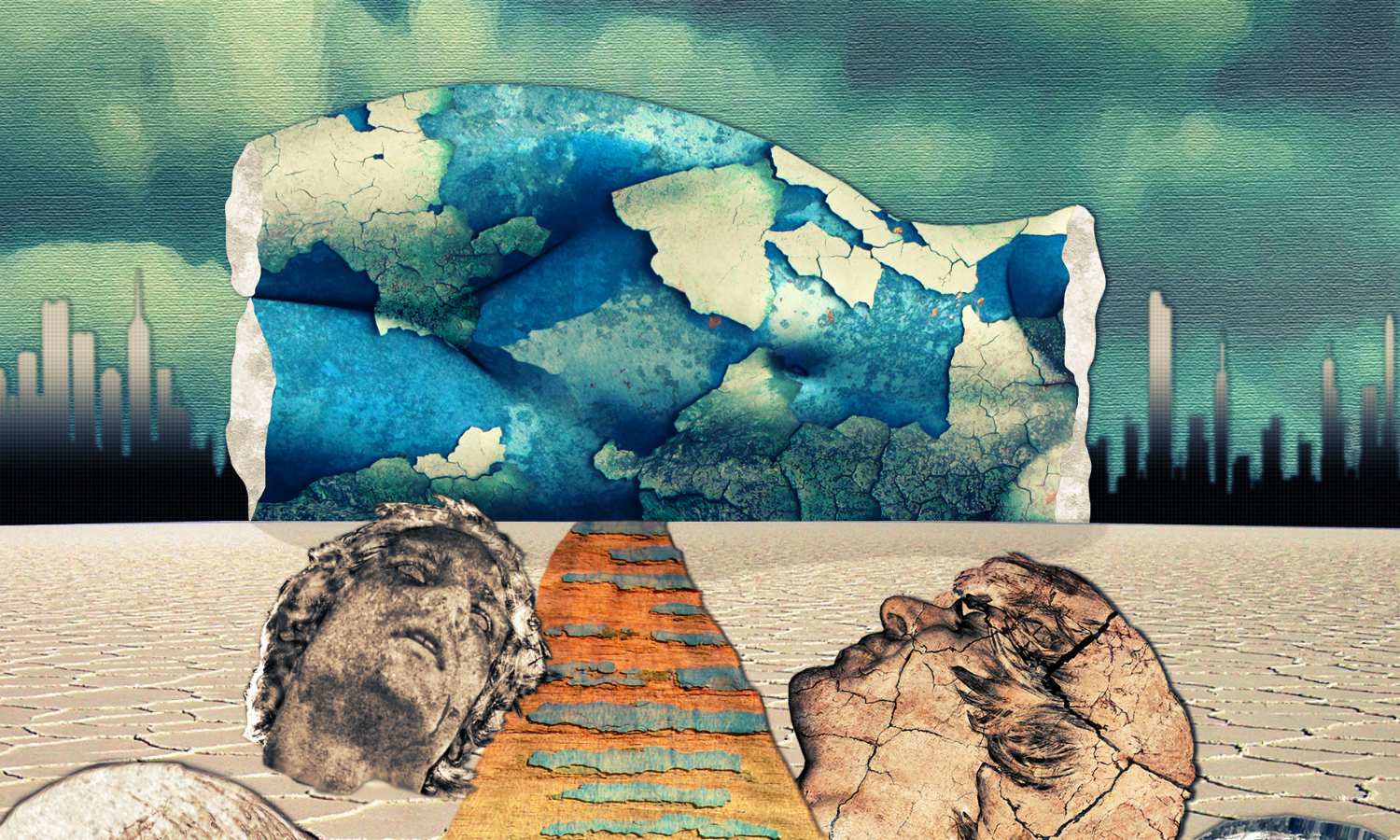Collapse And Us: On The Dangers Of Ecological Defeatism
Emilio Santiago, senior scientist at the CSIC and author of the book Contra El Mito Del Colapso Ecológico (Against The Myth Of The Ecological Collapse), believes that downplaying the importance of the climate crisis is as suicidal as letting yourself be carried away by paralyzing fear. Ecological collapse, he warns, is counterproductive to the transformation of our economic model.
Article
2024

Article
In 2015, Roy Scranton published a book that became a climate bestseller: Learning to Die in the Anthropocene. His thesis is that, in the face of the climate emergency, we must assume that «this civilization is already dead.» Faced with the certainty of disaster, the only response would be to stoically assume the ecological collapse, and perhaps build again among the ruins of modern society.
This defeatist outlook, which gives to the ecological collapse of our societies the status of destiny, is not anecdotal. Its presence is growing, both in ideological and scientific discourses — and in a general state of mind. Still, even while its excessive influence is problematic, the terror of the future is a justified sentiment. The eco-social situation is in a critical state, as disasters are multiplying in many parts of the planet and will intensify if we do not change course drastically.
The summer-autumn season of 2023 will go down in history for breaking high-temperature records, in a leap of scale that has the world’s climatologists perplexed. António Guterres, Secretary General of the United Nations, has launched a new term, «the era of global boiling», in an attempt to make world public opinion face the evidence perfectly summarized by the environmentalist Andreu Escrivà: «The world in which my parents lived no longer exists».
And, yes, this new world we are living in is very dangerous.
To face the fire, we need a middle ground between passivity and panic. Downplaying an existential danger is as suicidal as allowing ourselves to be dragged down by a paralyzing fear. Ecological collapse wallows in the effects of fear, something that, numerous studies conclude, leads to inaction.
This is why collapsist discourses are politically counterproductive for eco-social transformation.
Eco-political turbulence
Moreover, on a scientific level, the discourses of collapse are inaccurate. They tend to reproduce a whole series of intellectual vices, such as reductionism and determinism that eliminate from the equation the most important variable: human collective decisions.
Fatalism is a temptation to which we have no right
Rather than collapse, a category that is difficult to pinpoint with rigor, what we are going to see are eco-political turbulences of enormous magnitude and very unequal impacts.
This is not just a debate about terms. It does not matter whether we call it collapse, crisis, or upheaval, because the term «collapse» carries a toxic political moral: the state’s capacity to create transformative public policies is considered lost. But transformative public policies are still perfectly possible. And they will make the difference between catastrophe and the social opportunity to flourish in a fair, sustainable world that defines prosperity differently.
Renewable energy breakthroughs
As we face the 21st century, the reasons for ecological discouragement are robust. But the reasons for hope are not few. They range from the impressive technological revolution in renewable energy to scientific discoveries about soil biodiversity and its regenerative potential.
From government agendas that have made a substantial leap forward in terms of climate action, both legislative and budgetary, to a global economic moment that is more conducive to planning, industrial policy and wealth redistribution (three essential ingredients for a just eco-social transition). From the consolidation of new, more sustainable consumptionhabits (for example, in mobility or food) to a real mass awareness of the seriousness of the problem.
Today our societies have all the pieces to deploy a historical transformation that will allow us to overcome, in a way that is fair, the examination of decisive climatic decades. Fatalism is a temptation to which we have no right. It is time instead to forge a bold political process that articulates the contributions of all of us who have no interest in learning to die in the Anthropocene.
This content is part of a collaboration agreement of ‘WorldCrunch’, with the magazine ‘Ethic’. Read the original at this link.





